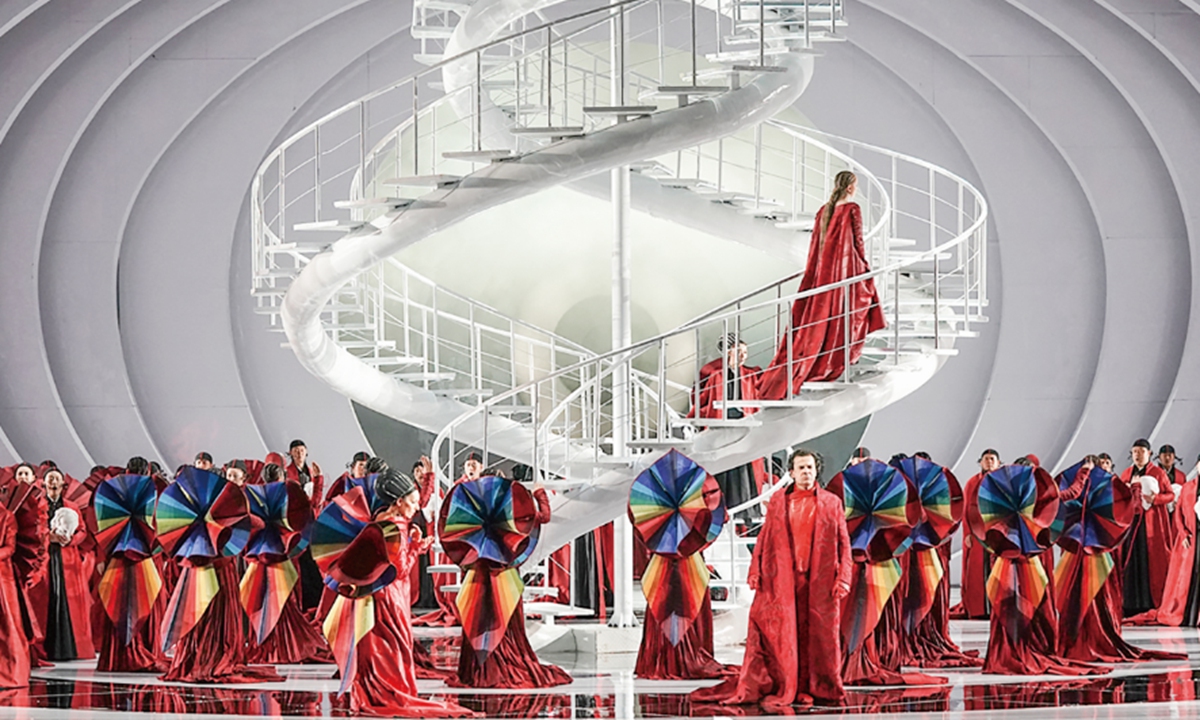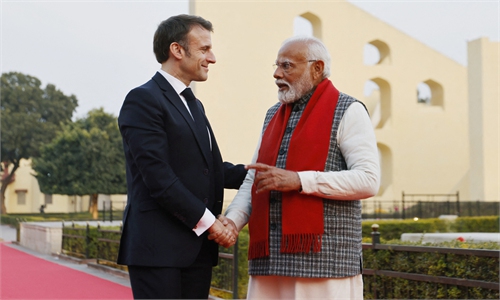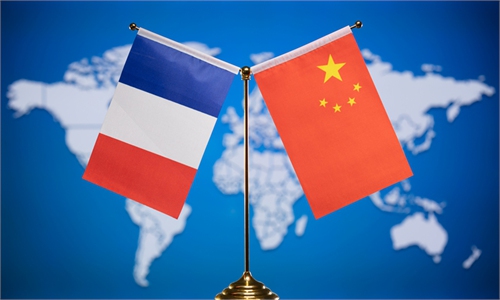ARTS / CULTURE & LEISURE
60 years of China, France exchanges aid understanding

A scene from the opera Roméo et Juliette
"Bravo, bravo, bravo!" At the National Centre for the Performing Arts, China's top national theater in Beijing's bazaar area, China and French co-produced theater productions won overwhelming applause from audiences over the weekend.The opera Roméo et Juliette by French composer Charles Gounod and the stage drama Les Misérables by French director Jean Bellorini are perfect proof of the fruitful cultural exchanges between China and France over the past 60 years.
On January 27, 1964, China and France broke the ice of the Cold War and crossed the divide between different blocs to establish diplomatic relations at the ambassadorial level, which pushed the global landscape to evolve in the right direction of dialogue and cooperation, and still offers inspiration for today.
As a Chinese saying goes, governing a big country is as delicate as frying a small fish. In fact, this principle of friendship between big countries is also contained in cultural exchanges as different directing, acting and cultural styles can collide to produce wonderful creations just like how adding proper seasoning to fry a small fish produces great dishes.
Over the past 60 years, China and France have understood each other and properly handled differences, allowing them to achieve mutually beneficial results.
In Les Misérables, French director Jean Bellorini introduces German playwright Bertolt Brecht's directing style, which makes broad use of the "defamiliarization effect" and "alienation method." Both of them are not often seen in Chinese performances.
However, the performance from China's top actor Liu Ye, who plays Jean Valjean in the drama inspired by Victor Hugo's masterpiece, proved that the system works very well with Chinese actors' style.
What's more, the French director included rich Chinese elements such as crosstalk, Kunqu Opera, and Pingtan, a type of traditional storytelling and ballad singing in the Suzhou dialect, to produce a splendid cultural feast with strong Chinese and French styles.
Stefano Poda, director of the new adaptation of Shakespeare's classic Roméo et Juliette, tried to create something that transcends cultural and geographical boundaries, a synthesis between cultures, to show the universality of Shakespeare: The stage setting comes from architecture in both the West and the East, and the costumes are a union of European and Chinese styles.
At the center of the stage is the union of two complementary parts - two opposing spheres that complement each other, like yin and yang. Shakespeare surely would be happy with this conception in which opposing tensions are appeased in a perfect union that combines contrast and conflict.
The relationship between countries lies in the friendships between the people. This winter, at the Harbin Ice and Snow World in Northeast China's Heilongjiang Province, ice sculptures shaped like the Temple of Heaven in China and Notre Dame de Paris in France have become online sensations.
The two countries will also hold an event to celebrate the 60th anniversary of the establishment of diplomatic relations and the opening of the Cultural Tourism Year at the Palace of Versailles in Paris on January 31. The opening concert will see Chinese and French musicians share the stage to present classic and innovative music in Paris.
These activities will promote mutual learning between the two major civilizations, allowing the Chinese and French people to know and understand each other.
From taking the lead in setting up cultural centers to hosting cultural years in each other's land, China and France's people-to-people exchanges have become a model for mutual learning among world civilizations.
China-France high-level dialogue mechanisms for people-to-people exchanges have become one of the three major dialogue frameworks between China and France, not only benefitting the people of both countries, but also playing a vital role in maintaining global peace and stability, promoting multi-polarization of the world, and advancing the democratization of international relations.



